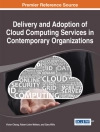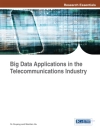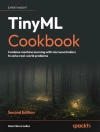Although much classical HF and mobile equipment is still in use by many amateurs, the use of computers and digital techniques has now become very popular among amateur radio operators. Nowadays, anyone can purchase a Raspberry Pi computer and run almost all amateur radio software on the ‘RPi’, which is slightly bigger than the size of a credit card.
The RTL-SDR devices have become very popular among hams because of their very low cost and rich features. A basic system may consist of a USB-based RTL-SDR device (dongle) with a suitable antenna, an RPi computer, a USB-based external audio input-output adapter, and software installed on the Pi. With such a simple setup it is feasible to receive signals from around 24 MHz to over 1.7 GHz. With the addition of a low-cost upconverter device, an RTL-SDR can easily and effectively receive the HF bands.
This book is aimed at amateur radio enthusiasts, electronic engineering students, and anyone interested in learning to use the Raspberry Pi to build electronic projects. The book is suitable for the full range of beginners through old hands at ham radio. Step-by-step installation of the operating system is described with many details on the commonly used Linux commands. Some knowledge of the Python programming language is required to understand and modify the projects given in the book. Example projects developed in the book include a station clock, waveform generation, transistor amplifier design, active filter design, Morse code exerciser, frequency counter, RF meter, and more. The block diagram, circuit diagram, and complete Python program listings are given for each project, including the full description of the projects.
Besides wide coverage of RTL-SDR for amateur radio, the book also summarizes the installation and use instructions of the following ham radio programs and software tools you can run on your Raspberry Pi: TWCLOCK, Klog, Gpredict, FLDIGI, DIRE WOLF, xcwcp, QSSTV, Lin Psk, Ham Clock, CHIRP, xastir, and CQRLOG.
Sobre el autor
Prof. Dr. Dogan Ibrahim has a BSc, Hons. degree in Electronic Engineering, an MSc degree in Automatic Control Engineering, and a Ph.D. degree in Digital Signal Processing. Dogan has worked in many industrial organizations before he returned to academic life. He is the author of over 70 technical books and has published over 200 technical articles on electronics, microprocessors, microcontrollers, and related fields. He has been a fully licensed amateur radio operator (G7SCU) for several decades and has participated in many local ham radio events. Being an amateur radio operator himself, he understands well the needs of both starting and experienced radio amateurs.












